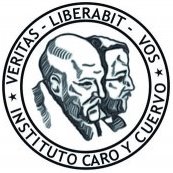
The Ministry of National Defence is the national executive ministry of the Government of Colombia charged with coordinating and supervising all agencies and functions of the government relating directly to national security and the military forces of Colombia, similar to the defense ministries in other countries. It is composed of the National Army, Navy, Aerospace Force and the National Police.

The Ministry of Agriculture and Rural Development is the national executive ministry of the Government of Colombia in charge of the management and oversight of the rural development and agriculture of Colombia.

The Ministry of Commerce, Industry and Tourism or MCIT, is the national executive ministry of the Government of Colombia concerned with promoting economic growth though trade, tourism and industrial growth.

The Ministry of Foreign Affairs (MRE) also known as the Chancellery, is the Cabinet position of the Government of Colombia responsible for the international relations of Colombia through its diplomatic missions abroad by formulating foreign policy relevant to the matters of the State. It is equivalent to the foreign affairs ministries of other countries.

The Caro and Cuervo Institute is an educative centre specialising in Spanish literature, philology and linguistics, with a focus on research and promotion of reading in Colombia. The institute produces editions of Colombian authors and promotes the preservation of the national literary heritage. The institute was named after two well-known Colombian linguists, former President Miguel Antonio Caro Tobar and Rufino José Cuervo Urisarri.

The Ministry of National Education is the national executive ministry of the Government of Colombia responsible for overseeing the instruction and education of the Colombian people, similar to education ministries in other countries.

The Institute of Hydrology, Meteorology and Environmental Studies, also known by its acronym in Spanish, IDEAM, is a government agency of the Ministry of Environment and Sustainable Development of Colombia. It is in charge of producing and managing the scientific and technical information on the environment of Colombia, and its territorial composition. The IDEAM also serves as the Colombian institute of meteorology and studies the climate of Colombia. The agency is currently led by the Director General, forestry engineer Yolanda González Hernandez. González Hernández is a specialist in Geographic Information Systems with a Masters in Meteorology Sciences from the National University of Colombia, and is the first woman to lead the agency.
The Administrative Department of the Presidency of the Republic consists of the immediate staff of the President of Colombia, as well as multiple levels of support staff reporting to the President. The DAPRE is the Executive Administrative Department that assists the President in the exercise of its duties by lending the administrative support and related services to fulfil his official and constitutional duties.
The Administrative Department of Public Service is the Colombian executive administrative department in charge of formulating the general policies of public administration, especially in matters relating to civil service, management, internal control and streamlined procedures of the Executive Branch of Colombia.
The National Administrative Department of Solidarity Economy was a Colombian Executive Administrative Department in charge of directing and coordinating government policy to promote, plan, protect, strengthen, and develop the organizations of social economy in order to improve the quality of life of the Colombian people.

The Ministry of Culture is the national executive ministry of the Government of Colombia charged with preserving, promoting, and encouraging the growth, free expression and understanding of the culture of Colombia in all its multi-ethnic forms.
The Administrative Department of Sport, Recreation, Physical Activity and the Use of Free Time, Coldeportes was the national government department of sports in and for Colombia; it is charged with fomenting, planning and organizing the activities of sport and physical education.

Ministry for the Information and Communications Technologies, is the national executive ministry of the Government of Colombia responsible for overseeing the information and communication technologies, telecommunications and broadcasting industries in Colombia.
The Ministry of Social Protection was a national executive ministry of the Government of Colombia responsible for coordinating and implementing the national policy and social services relating to employment, labour, health and social security; it operated from 2002 to 2012.
The National Institute of Concessions, INCO, was a Colombian government agency in charge of funding the planning and execution of road, river, sea, rail and port transportation projects in the country. It was dissolved and replaced by the National Infrastructure Agency in 2011.

The National Roads Institute (INVÍAS) is an agency of the Executive Branch of the Government of Colombia in charge of allocating, regulating and supervising contracts for highway and roads construction and maintenance.

The Ministry of Health and Social Protection is one of the sixteen national executive ministries of the Government of Colombia, and is responsible for coordinating and implementing the national policy and social services relating to health and social security.

The Ministry of Labour is the national executive ministry of Colombia in charge of formulating, implementing, and orienting labour policy and labour relations to stimulate job growth through job creation programs. It is also in charge of labour rights, pensions, and occupational safety and health in Colombia.The post of Minister of Labor in Colombia is held by Gloria Ines Ramirez.

The Ministry of Housing, City and Territory is the national executive ministry of Colombia in charge of formulating, implementing, and orienting housing policy, urban planning, and water supply and sanitation services in the country.

The Ministry of Environment and Sustainable Development is the national executive ministry of the Government of Colombia in charge of formulating, implementing, and orienting environmental policy to ensure the sustainable development of the country.














